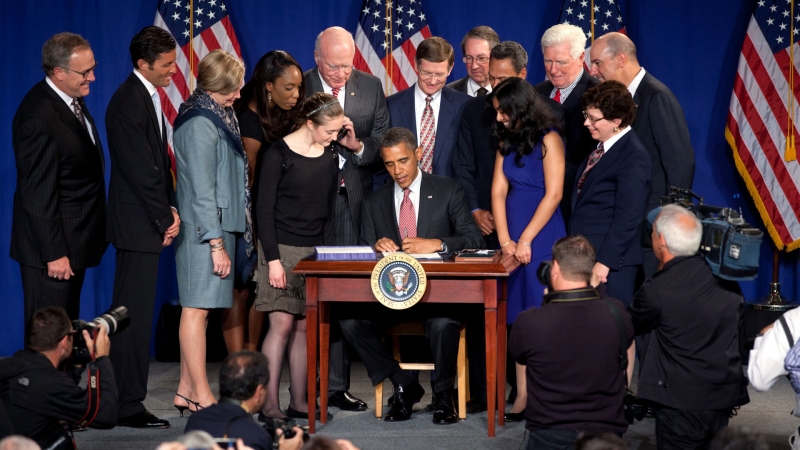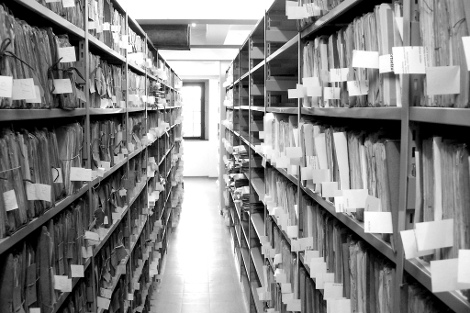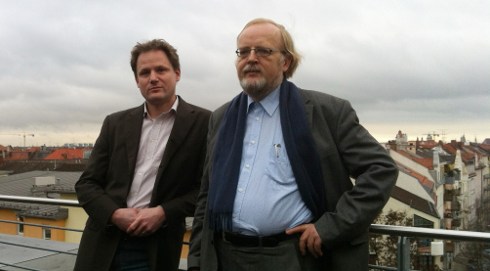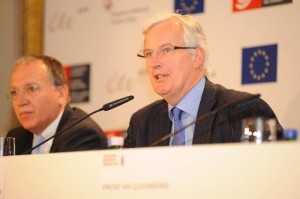The final package of the Leahy-Smith America Invents Act (H.R.1249, pdf) will enter into force on 16 March 2013 (for a list of amendments and their effective dates, see here). By this date, the most significant amendments of the new Act will enter into force, namely the transformation from the traditional first-to-invent regime to the new first-inventor-to-file regime.
Besides reducing the USPTO’s backlog of approx. 680.000 patent applications and improving patent quality, the main objective of the America Invents Act is to harmonise the US patent system better with international patent law standards and by that facilitate second filings of US applicants in foreign jurisdictions.
This is indeed a brilliant idea, not only for US applicants but also for European applicants and practitioners, as it will align the US system closer with the European patent system. However, event for those legal instruments that are clearly adapted to the European point of view, important differences remain. Some of those tiny differences that may have a huge impacts on practice are outlined below:
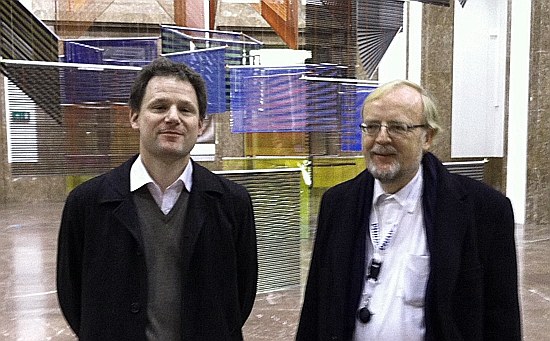
IP bloggers exhausted from the Unitary Patent end-of-year rallye but happy that finally some blinds were openend to permit a view of the new pan-European patent landscape.
OUR BEST WISHES FOR A MERRY CHRISTMAS
AND A HAPPY NEW YEAR
LES MEILLEURS VŒUX POUR UN JOYEUX NOËL
ET UNE BONNE ANNÈE
UNSERE BESTEN WÜNSCHE
FÜR FRÖHLICHE WEIHNACHTEN
UND EIN GLÜCKLICHES NEUES JAHR
A couple of years ago, in 2007 the European Patent Office (EPO) was pleased to invite to its annual Online Services conference, which that year took place in the Lake Como area, Italy, on 13 and 14 November. The conference theme was ‘End-to-end electronic processing – how to survive when the EPO no longer accepts paper‘. In fact, within the broader context of the European Patent Network EPN, the EPO strived to modernise itself by announcond advanced electronic digital network superstructures.
The intention was to eliminate paperwork also with regard to communication to and from the applicants, that is, in many cases, their patent attorneys, well before the end of the decennium; see Barbara Cookson’s report here. A message on the EPO website (which, meanwhile, is long gone) said:
Continue reading »
After the EU Competitive Council’s debate on the EU Patent Package (Regulation covering the Unitary Patent and its Language Regime and an international treaty covering the Unified Patent Court) ended Monday night, a nightly press report explained that only a few more days were needed to reach an agreement on the whole package, while the negotiators of the Polish Presidency added that “only the seat of the Central Division of the Unitary Patent Court needs to be decided”.
Before the Council meeting London and Munich were said to be the favourite cities for hosting the seat of the 1st Instance Central Division (see here or here), while Luxembourg was set for the seat of the 2nd Instance Court of Appeal since the home of the European Court of Justice (CJEU) for some reason was the only candidate for hosting this authority. Immediately after the meeting it was reported that the German and UK delegations objected to the Presidency’s compromise suggestion to have the “seat of the main litigation court for the upcoming EU patent” in Paris (see details here or here).
Since then the it looks like the candidate list changes constantly, as further candidates appear to throw down their gauntlet in the competition to host the Central Division, while others may have minimised their chances due to very recent political moves.
Parallel to these negotiations speculations sprout up that Italy and maybe also Spain might abandon their resistance against becoming a member state of the Unitary Patent. Especially in the case of Italy – now governed by pro-Europe Prime Minister Mario Monti who actively supported the Unitary Patent (see e.g. EU press releases IP/97/558 of 6/97 or IP/99/105 of 2/99) when he was a member of the European Commission from 1994 to 2004, first as Commissioner for the Internal Market (and thus predecessor of Michel Barnier who currently is in charge of the patent reform) and then as Commissioner for Competition – such rumours were reinforced by Mr Pierre Delsaux, deputy director general under Commissioner Barnier, who was reported to have revealed that Mario Monti is in fact considering joining the unitary system (see also tweet).

Are European Patent Attorneys prepared to fight for their right to represent parties before the Unified Patent Court in both validity and litigation cases?
As reported earlier on this blog, the debate on the role of Patent Attorneys before the future Unified Patent Court has been reopened by the JURI Committee of the European Parliament, which suggested in a “Draft Report on a jurisdictional system for patent disputes” (2011/2176 (INI)) dated 9 September 2011 that
“the parties should be represented only by lawyers authorised to practise before a court of a Contracting Member State; the representatives of the parties might be assisted by patent attorneys who should be allowed to speak at hearings before the Court”,
which, if ever put into action, would fall back behind the current situation in major European patent jurisdictions, such as UK or Germany, where patent attorneys are entitled to represent parties at least in validity actions.
As opposed to the JURI suggestion, current Article 28 (Representation) of the “Revised Presidency Text” of the Draft Agreement on a Unified Patent Court and draft Statute (Doc. 16023/11) dated 26 October 2011 rules that besides national lawyers
(2) Parties may alternatively be represented by European Patent Attorneys who are entitled to act as professional representatives before the European Patent Office pursuant to Article 134 of the EPC and who have appropriate qualifications such as a European Patent Litigation Certificate.
LOBBYING …
One may ask why JURI tries to exclude European Patent Attorneys from representation before the Unified Patent Court. I don’t have an answer yet, but it’s a matter of fact that at least 15 out of 25 members of the JURI Committee are lawyers (e.g. rapporteur Klaus-Peter Lehne is a partner of TaylorWessing, having one of the largest patent law departments in Europe), while none of the members is a patent attorney or – at least according to the biographies available on the website of the European Parliament – has any significant experience or deeper insight in patents, patent law, or the patent system.
Since JURI does not provide any further arguments apart from that “it is of utmost importance that parties are represented by lawyers”, it may not be too far fetched to consider JURI’s demand as plain lobbyism or, at least, resulting from a significant lack of knowledge regarding the competences, qualifications, and day-to-day practice of European Patent Attorneys.
In fact, as opposed to many other fields of law, intellectual property and especially patents are a very lucrative and even growing legal market for lawyers, so that there is certainly quite some lobbying going on in this question, which is considered crucial for the business model of patent lawyers.
For example, the “patent attorneys may assist lawyers” wording in JURI’s Draft Report looks as if it was just copied from a position paper of the vocal lawyer’s lobby group CCBE (see also the “concerns” of CCBE’s secretary-general Jonathan Goldsmith and the critical response of Tibor Gold, editor of the monthly Journal at The Chartered Institute of Patent Attorneys).
Yesterday the EPO News channel reported on a “renewed commitment to cost-efficient European patents” by the EPO and the European Commission. As nobody really had the slightest doubts on the continued and strong support by the project’s two main driving forces, this “news” does not sound that confident and persuasive as it apparenty was intended.
I cannot help, but to me it sounds more like political PR language or even autosuggestion if the President of the EPO, Benoît Battistelli, and the European Commissioner for the Internal Market and Services, Michel Barnier, jointly confess that “the unitary patent is [...] expected to simplify procedures and lower the costs for applicants by up to 70%“.
Fees for International Applications Change as of 1 September 2011
As of 1 September 2011 the fees for international (PCT) applications will change (see EPO Notification of EPO of 3 Augst 2011) as follows:
- International filing fee: from EUR 999 to EUR 1 088
- Fee per sheet in excess of 30: EUR 11 to EUR 12
- Reductions (under the Schedule of Fees, item 4):
- Electronic filing (the request being in character coded format) from EUR 150 to EUR 164
- Electronic filing (in character coded format) from EUR 225 to EUR 245
- Handling fee: from EUR 150 to EUR 164
The fees for international applications are calculated in Swiss Francs (CHF). The fee change is due to another amendment (after that of 1 January 2011) of the equivalent amounts in EUR by the International Bureau (see Official Notice in PCT Gazette of July 2011 (p. 94).
 Since some time there is a political dispute ongoing relating to the enforcement of IP rights – here: in particular trade marks and patents – at EU borders when generic drugs get onto EU territory for transit. The concerns are that drugs might get seized during transit by EU border control Officials despite the fact that trade therein is illegal neither in the country of origin nor in the final destination country. Also in view of ACTA such voices have been raised which got, however, a firm denial from the EU Commission; see also the Directorate-General for External Policies of the Union (Directorate B – Policy Dept.) publishing a study conveying an assessment of the Anti-Counterfeiting Trade Agreement (ACTA) which had been requested by the European Parliament’s Committee on International Trade .
Since some time there is a political dispute ongoing relating to the enforcement of IP rights – here: in particular trade marks and patents – at EU borders when generic drugs get onto EU territory for transit. The concerns are that drugs might get seized during transit by EU border control Officials despite the fact that trade therein is illegal neither in the country of origin nor in the final destination country. Also in view of ACTA such voices have been raised which got, however, a firm denial from the EU Commission; see also the Directorate-General for External Policies of the Union (Directorate B – Policy Dept.) publishing a study conveying an assessment of the Anti-Counterfeiting Trade Agreement (ACTA) which had been requested by the European Parliament’s Committee on International Trade .
This particular issue has long been a disputed item on the agenda of negotiations for an India / EU Free Trade Agreement. EU recognises India as an important trade partner for the EU and a growing global economic power, saying that it combines a sizable and growing market of more than 1 billion people with a growth rate of between 8 and 10 % – one of the fastest growing economies in the world. Although it is far from the closed market that it was twenty years ago, India still also maintains substantial tariff and non-tariff barriers that hinder trade with the EU. The EU and India hope to increase their trade in both goods and services through the Free Trade Agreement (FTA) negotiations that they launched in 2007. According to a press report, Indian and European trade ministers had hoped to sign the ambitious deal by the end of March 2011. However, there have been, inter alia, problems with the protection of intellectual property.
On July 28, 2011, the Ministry of Commerce & Industry of India has published a press release (emphasis added by me, -AHH):
“European Union has proposed a settlement of the dispute by confirming the detailed principles agreed in the Understanding to guide border enforcement of intellectual property in the EU. In addition, EU agreed to India’s request for adoption of guidelines which would confirm the principles agreed to in the Understanding with a view to give greater and immediate legal certainty for producers and traders. EU also agreed to reflect the principles contained in the Understanding in its proposal for a new Regulation to replace Regulation 1383/2003. In return the EU sought an assurance that India would refrain from further steps in the ongoing dispute. Mr. Jean-Luc Demarty, Director General, European Commission sent a letter to this effect on 17 June 2011 to Commerce Secretary Shri Rahul Khullar.
India has taken note of the commitments offered by the EU. India has reiterated the core principle of the Understanding that the mere fact that medicines are in transit through EU territory, and that there is a patent title applicable to such medicines in the EU territory, does not in itself constitute enough grounds for customs authorities in any Member State to suspect that the medicines at stake infringe patent rights. However, a situation in which medicines are in transit through EU territory and there is adequate evidence that satisfies the customs authorities that there is a substantial likelihood of diversion of such medicines on to the EU market may constitute enough grounds for customs authorities to suspect that the medicines at stake infringe patent rights in the EU. [...]“
Hence, it looks as if pragmatism and common sense have prevailed in taking away this particular obstacle to the conclusion of the Free Trade Agreement.
(Image: EU Commission)
The k/s/n/h::law blog
Some of the patent attorneys of the KSNH law firm have joined their efforts to research what is going on in the various branches of IP law and practice in order to keep themselves, their clients as well as interested circles of the public up to date. This blog is intended to present results of such efforts to a wider public.
Blog Archives
- November 2013 (2)
- October 2013 (1)
- September 2013 (1)
- August 2013 (2)
- July 2013 (3)
- June 2013 (5)
- March 2013 (5)
- February 2013 (4)
- January 2013 (5)
- December 2012 (5)
- November 2012 (5)
- July 2012 (5)
- June 2012 (8)
- May 2012 (5)
- April 2012 (3)
- March 2012 (4)
- February 2012 (5)
- January 2012 (6)
- December 2011 (12)
- November 2011 (9)
- October 2011 (9)
- September 2011 (4)
- August 2011 (7)
- July 2011 (4)
- June 2011 (1)
Blog Categories
- business methods (6)
- EPC (7)
- EPO (12)
- EU law (92)
- ACTA (8)
- CJEU (4)
- Comitology (1)
- competition law (2)
- Enforcement (6)
- EU Unified Patent Court (62)
- FTA India (1)
- TFEU (2)
- Trade Marks (5)
- European Patent Law (37)
- German Patent ACt (PatG) (1)
- German patent law (5)
- Germany (6)
- Pirate Party (3)
- International Patent Law (4)
- PCT (2)
- IP politics (10)
- licenses (2)
- Litigation (5)
- Patentability (7)
- Patents (12)
- Piratenpartei (2)
- Software inventions (10)
- Uncategorized (9)
- Unitary Patent (24)
- US Patent Law (4)
Comments
- kelle on Germany: Copyright Protection More Easily Available For Works Of “Applied Arts”
- Time Limits & Deadlines in Draft UPCA RoP: Counting The Days - KSNH Law - Intangible.Me on Wiki Edition of Agreement on Unified Patent Court Agreement (UPCA)
- Time Limits & Deadlines in Draft UPCA RoP: Counting The Days | ksnh::law on Wiki Edition of Agreement on Unified Patent Court Agreement (UPCA)
- Wiki Edition of Agreement on Unified Patent Cou... on Wiki Edition of Agreement on Unified Patent Court Agreement (UPCA)
- European Commission Takes Next Step Towards Legalising Software Patents in Europe | Techrights on EU Commission publishes Proposal of amendend Brussels I Regulation for ensuring Enforcement of UPC Judgements
Blogroll
- 12:01 Tuesday
- America-Israel Patent Law
- Anticipate This!
- AwakenIP
- BlawgIT
- BLOG@IPJUR.COM
- BP/G Radio Intellectual Property Podcast
- Broken Symmetry
- Class 46
- Director's Forum: David Kappos' Public Blog
- Gray on Claims
- I/P UPDATES
- IAM Magazine Blog
- Intellectual Property Intelligence Blog
- IP Asset Maximizer Blog
- IP CloseUp
- IP Dragon
- IP Watch
- IP Watchdog
- IPBIZ
- ipeg
- IPKat
- ITC 337 Law Blog
- Just a Patent Examiner
- K's Law
- MISSION INTANGIBLE
- Patent Baristas
- Patent Circle
- Patent Docs
- Patently Rubbish
- PatentlyO
- Patents Post-Grant
- Reexamination Alert
- SPICY IP
- Tangible IP
- The 271 Patent Blog
- The Intangible Economy
- THE INVENT BLOG®
- Think IP Strategy
- Tufty the Cat
- Visae Patentes
The KSNH blogging landscape


This blog and the German-language sister blog k/s/n/h::jur link to the two popular and privately run blogs IPJur und VisaePatentes and continue their work and mission with a widened scope and under the aegis of our IP law firm.
ksnhlaw on Twitter
- No public Twitter messages.
 KSNH::JUR Feed (german)
KSNH::JUR Feed (german)- Ist Verschlüsselung passé? September 6, 2013Auf verschiedenen Feldern beruflicher Praxis ist dafür zu sorgen, dass Kommunikation vertraulich bleibt. Die trifft beispielsweise für Ärzte zu, aber auch für Anwälte, darunter auch Patentanwälte. Einer der zahlreichen Aspekte, die in diesem Zusammenhang eine Rolle spielen, ist die Technik, um die Vertraulichkeit beruflicher Kommunikation sicherzustellen. Wa […]
- EU-Einheitspatent: Demonstrativer Optimismus und Zahlenmystik allerorten – Naivität oder politische Beeinflussung? June 26, 2013Nach mehreren vergeblichen Anläufen zur Schaffung eines EU-weiten Patentsystems wurde 1973 als Kompromiss das Europäische Patentübereinkommen unterzeichnet, welches unabhängig von der seinerzeit noch EWG genannten Europäischen Union System zur zentralisierten Patenterteilung mit nachgeordnetem Einspruchsverfahren durch das Europäische Patentamt schuf. Wie wi […]
- Moderne Zeiten oder: DPMA und Patentgericht streiten über die elektronische Akte April 25, 2013Bekanntlich hat das Deutsche Patent- und Markenamt (DPMA) im Jahre 2013 mit der rein technischen Fertigstellung der Einrichtungen zur elektronischen Akteneinsicht einen wichtigen Meilenstein seines Überganges von der Papierakte zur “elektronischen Akte” erreicht. Im DPMA werden aber bereits seit dem 01. Juni 2011 Patente, Gebrauchsmuster, Topografien und erg […]
- Gutachten zu Forschung, Innovation und technologischer Leistungsfähigkeit Deutschlands 2013 March 11, 2013Unter dem Datum vom 28. Februar 2013 ist die Bundestags-Drucksache 17/12611 veröffentlicht worden Sie trägt den Titel Unterrichtung durch die Bundesregierung - Gutachten zu Forschung, Innovation und technologischer Leistungsfähigkeit Deutschlands 2013. Die Bundesregierung legt dem Deutschen Bundestag seit dem Jahr 2008 […]
- 3D-Printing: Zum Filesharing von 3D-Modelldaten February 25, 2013In meiner kleinen zuvor angekündigten Reihe über rechtliche Aspekte des 3D Printing komme ich heute auf die Frage zu sprechen, ob die Hersteller von Gerätschaften es hinnehmen müssen, wenn Ersatztreile davon – vom Brillengestell über Smartphone-Gehäuseteile bis hin zu Rastenmähermotor-Abdeckungen – gescannt und die daraus […]
- Ist Verschlüsselung passé? September 6, 2013

